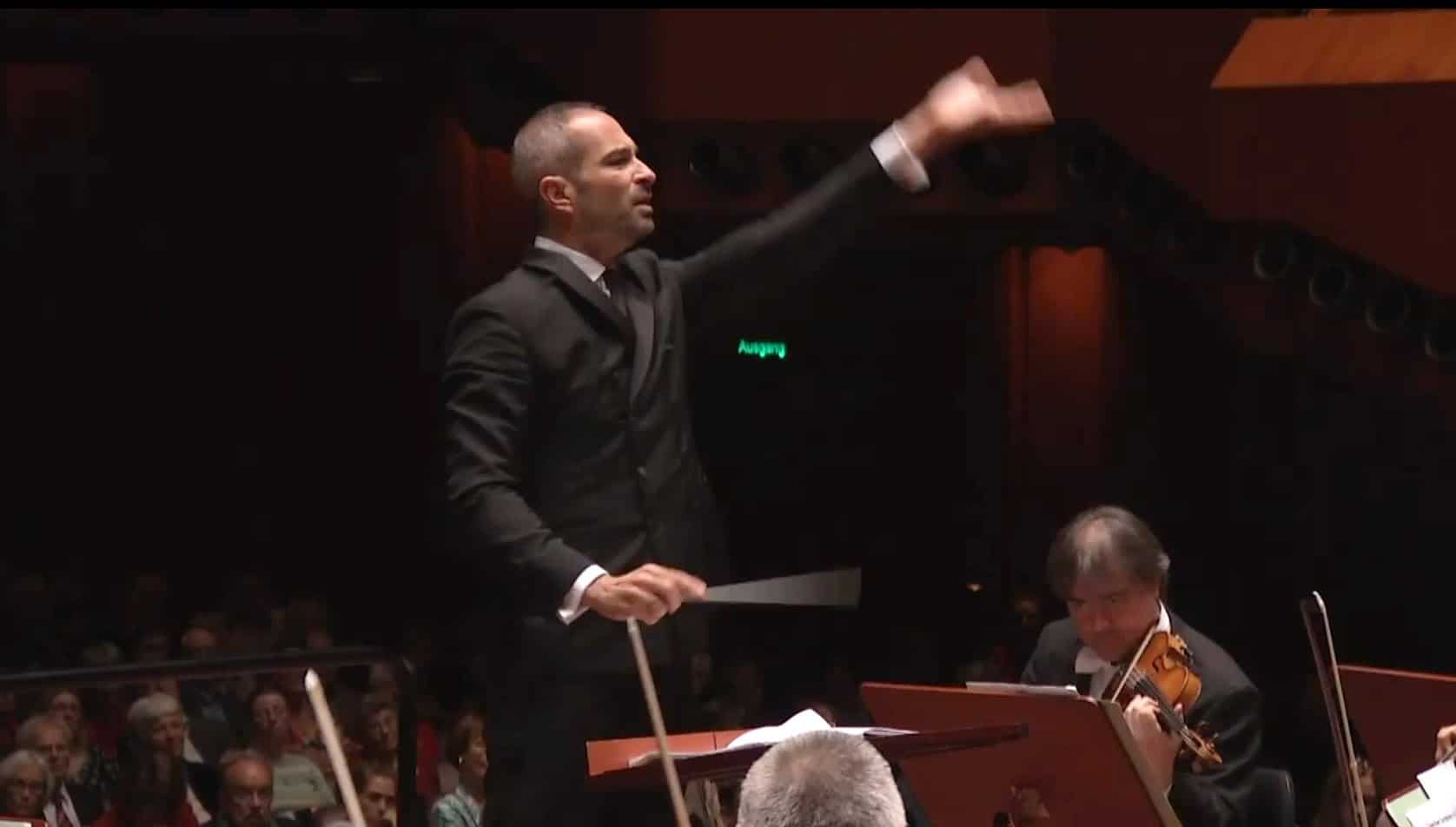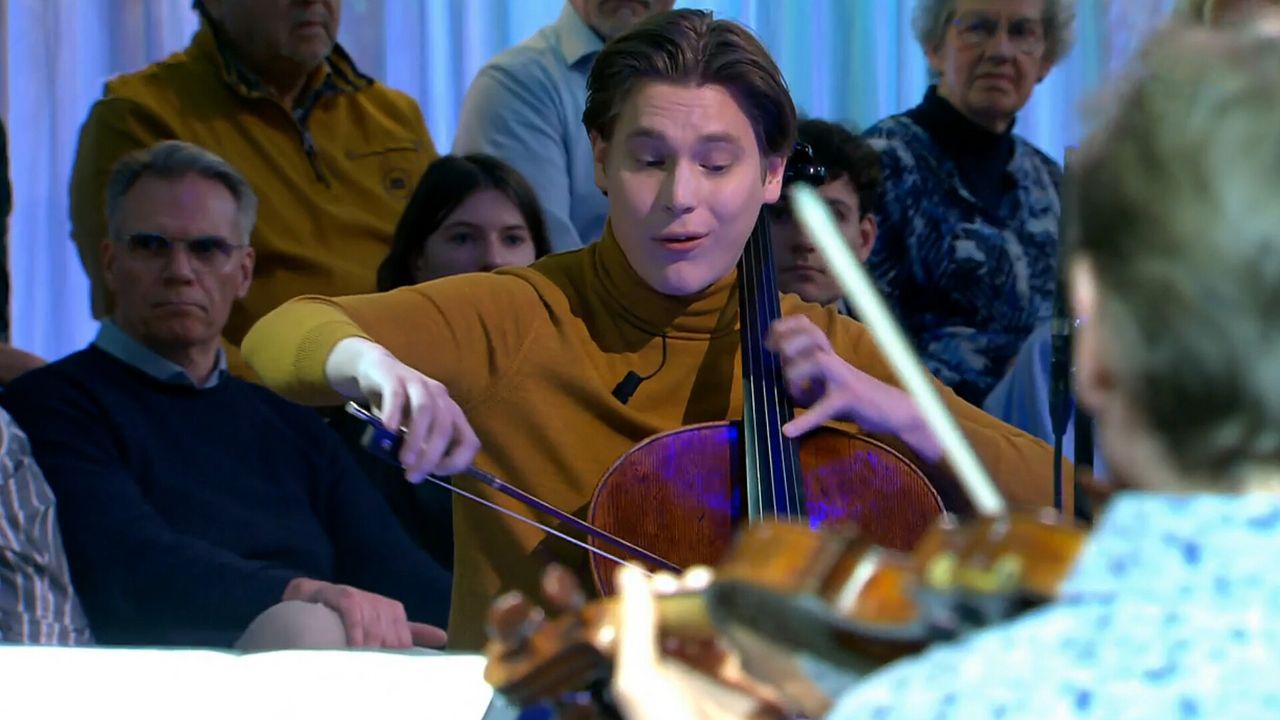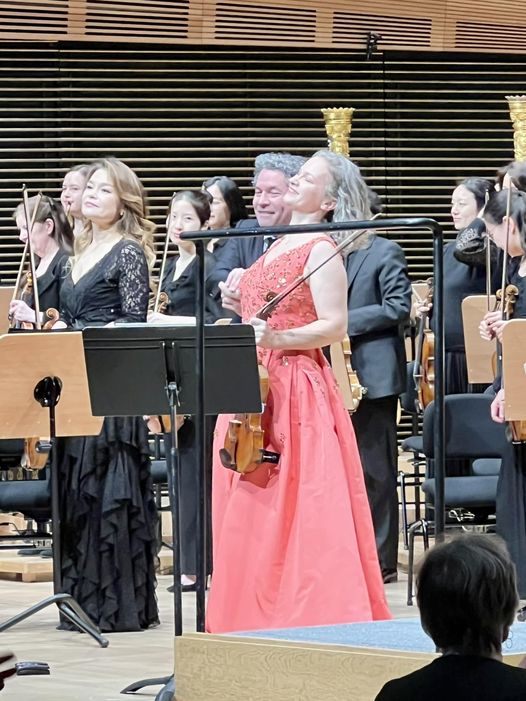Maestro quits, may not be replaced
NewsThe Italian Antonello Manacorda will step down as chief conductor of the Potsdam Chamber Orchestra, in Germany, after 15 mutually rewarding years.
The players are starting to discuss whether a chamber ensemble actually needs a chief conductor.
It’s an open question whether a small orchestra still needs a poster boy or girl.






He is doing Beethoven’s Ninth at the Boulez Saal this year. I’m almost curious to see how that’s supposed to work.
Good point. In this stage of history, there is NO orchestra that needs another egotistical sociopath, male OR female. Leaders should emerge from within the ranks and not suddenly show up with a carpet bag alone by virtue of making the board swoon.
Right, most are terrible, some are great, all are set up to become sociopaths, but there are plenty of exceptions. But for your own health, get some therapy, please.
“The players are starting to discuss whether a chamber ensemble actually needs a chief conductor”
I think that not only Chamber orchestras need to discuss whether they need “chief conductor”- large symphony orchestras also need to discuss it. Gone are the days when people like Szell and Ormandy spent the majority of their time in “their” orchestra. A typical chief conductor spent nowadays perhaps 25-30% of his time their, and sometime they run three differnt orchestras – which is really pointless.
‘His time’…. *facepalm*
Does a chief conductor have to be male? It’s 2023………
The post refers directly to the work of Szell and Ormandy. Why would “his time” be sexist when referring to the work of two male conductors?
Sadly this is usually the case nowadays, but Petrenko with BPO seems to be an exception. Though he does not do as many programme as Rattle per year(as least per the concerts on DCH), seems he is quite committed to the BPO and the programmes are mostly inspiring, and his limited guest appearances also often coincides with his Berlin programme.
But how will he survive not being a poster boy?
Conducting is truly the one profession in classical music that most resembles a scam. One person — who in a large majority of cases produces close to nothing, except perhaps coordinate a whole, that is when they actually have the musical competence to do so — essentially takes credit for the work of highly experienced musicians who usually know the repertoire much better than the person in front of them. Quite often, experienced musicians are able to salvage a performance by ignoring a conductor’s wrong and/or unclear cues — not to mention the high level instrumental skills they already bring to the table to begin with. Now, there are occasionally conductors who do bring something significant to the table and who are able to truly inspire an orchestra, but these are very far and few between. In my 30 years I have seen perhaps 5, out of literally dozens of conductors. The rest were mostly poseurs with a modicum of competence whose main talent lies in having the social skills and narcissist charm needed to reach highly coveted positions of power. This of course has become much worse with our internet-driven, visual culture. Conducting has now become mostly window-dressing and in fact a novel form of advertisement — the manufacturing of a marketable, attractive persona with the misguided aim to bring in new audiences, which for the most part doesn’t work, as the only result usually achieved instead is alienating existing audiences. You can’t sustainably convince people to explore a new art form through cheap gimmicks. The main challenge lies in the fact that fewer and fewer people have any exposure to classical music and therefore cannot develop a genuine lasting interest in it, and this problem won’t be solved by externals nor by displaying cool-looking visual accoutrements or by having a personality more “down to earth.” All of these are just manifestations of an overall race to the bottom whose main priority is essentially the bottom line — whatever it might take.
A new conductor was installed at the Konzerthausorchester Berlin, not far from Potsdam. She is a case in point. Namely a posterperson with narcissict charm and not even a modicum of competence.
Joanna Mallwitz? I have to say she strikes me as anything but incompetent.
True, true…
Well said!!!
Manacorda is not even a conductor, he was Abbado’s concertmaster in that chamber orchestra…
All conductors were something else once. Being concertmaster would I thought give him better credentials than most.
@Petros: Sadly, not all conductors were something else before, and more’s the pity. The profession of conductor was born of the leader (or concertmaster, if you wish), much as the fish left the water and crawled onto land. It’s a natural step up. The baton is a stylised violin bow.
Novagerio, this is simply not true.
Antonello Manacorda was Abbado’s concertmaster in his youth, but since 2006, after a training with Jorma Panula, he is a full time and outstanding conductor.
He his at this very moment conducting Don Giovanni at the Opéra de Paris, and before that has successfully conducted operas at, amongst others, La Fenice (Venice), La Monnaie (Brussels), ROH Covent Garden (London), Glyndebourne Festival, MET (New York), Liceu (Barcelona), Les Arts (Valencia), Wiener Staatsoper, and Frankfurt, Munchen and so on.
He has been principal conductor of the Gelders Orchestra (Netherlands) from 2011 to 2018.
He is Artistic Director of the Kammerakademie Potsdam since 2010. With them, he has been recording the Schubert and Mendelssohn symphonies, Mozart’s last 3 symphonies and is currently recording the complete Beethoven symphonies.
Just think how much money smaller per service orchestras could save by hiring a guest conductor for each concert series, just like they’d hire any other guest artist. Speaking from experience, the quality of the performances would be just as good if not better. Musicians pay closer attention when there’s a new person on the podium.
Money would be saved. I’m certain money would also remain unearned/not contributed without that “celebrity” on the podium. This is easy to say when the assumption is the audience can actually tell the difference between a small per service and the international touring orchestras.
This is a question I ask myself often in my role as President of a small per service orchestra.
A site on the web suggests there are 24 players in this ensemble.
That’s a lot if there isn’t someone to say, “this is what we will do…”
But conductor-less ensembles are very interesting to watch.
Look at any review, in print or online, of a recording of orchestral music, and the Heldendirigent gets the blame/credit every single time.
I don’t believe they do.
I’ll come and conduct one concert for free . I need somewhere to ride motorcycle . . Home town Liverpool .
Violinist in RLPO for 38 years and a little conducting . Let’s try W Kilar
“krzesany” ? Choosing repertoir is important . Please get back
The Australian Chamber Orchestra is a model. World standard, Director Richard Tognetti is totally integrated within the orchestra, with others ( eg principal violinists Satu Vanska and Helena Rathbone) also leading for concerts.